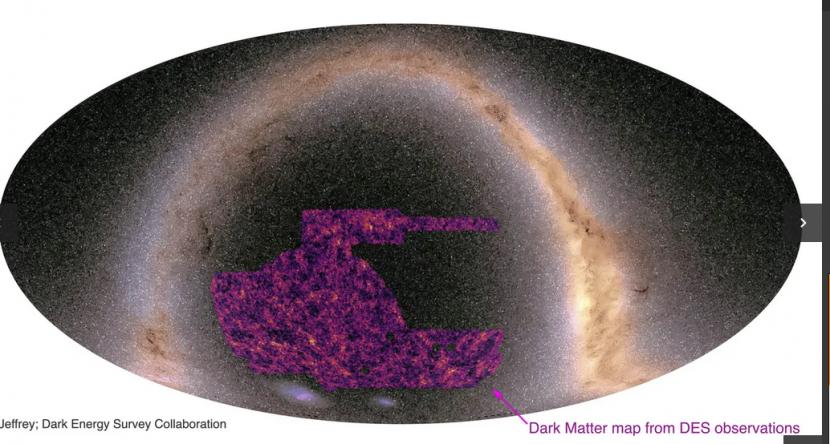Dark matter is a mysterious substance that dominates the universe.
REPUBLIKA.CO.ID, NAGOYA – Scientists have discovered dark material around a galaxy that existed about 12 billion years ago. This discovery is the first discovery of a mysterious dominant substance universe this.
This discovery was achieved by a collaborative team led by researchers from the Japanese University of Nagoya. The results suggest that dark material in the early universe was less “lumpy” than many current cosmological models predict.
If further research confirms this theory, it could change scientists’ understanding of how galaxies evolve. The key to mapping dark matter in the early universe is the cosmic microwave background (cosmic microwave background/ CMB). CMB is a kind of fossil radiation left over from the Big Bang that is distributed throughout the cosmos.
Since light takes a limited time to travel from distant objects to Earth, astronomers see other galaxies as they are when observed light leaves them. The farther a galaxy is, the longer the light has traveled.
However, observing dark material is more complicated. Dark matter is a mysterious substance that makes up about 85% of the total mass of the universe. Dark matter does not interact with matter and light like everyday matter is made up of protons and neutrons that fill stars and planets.
Detects “early” dark material.
To “see” dark matter, astronomers must rely on its interaction with gravity. According to Einstein’s theory of relativity, objects of extraordinary mass cause the curvature of space-time. A common analogy is an elastic rubber sheet holding a ball with increasing mass.
The greater the mass, the greater the “dent” it creates in the sheet. Likewise, the larger the cosmic object, the more extreme the curvature of space-time it creates.


